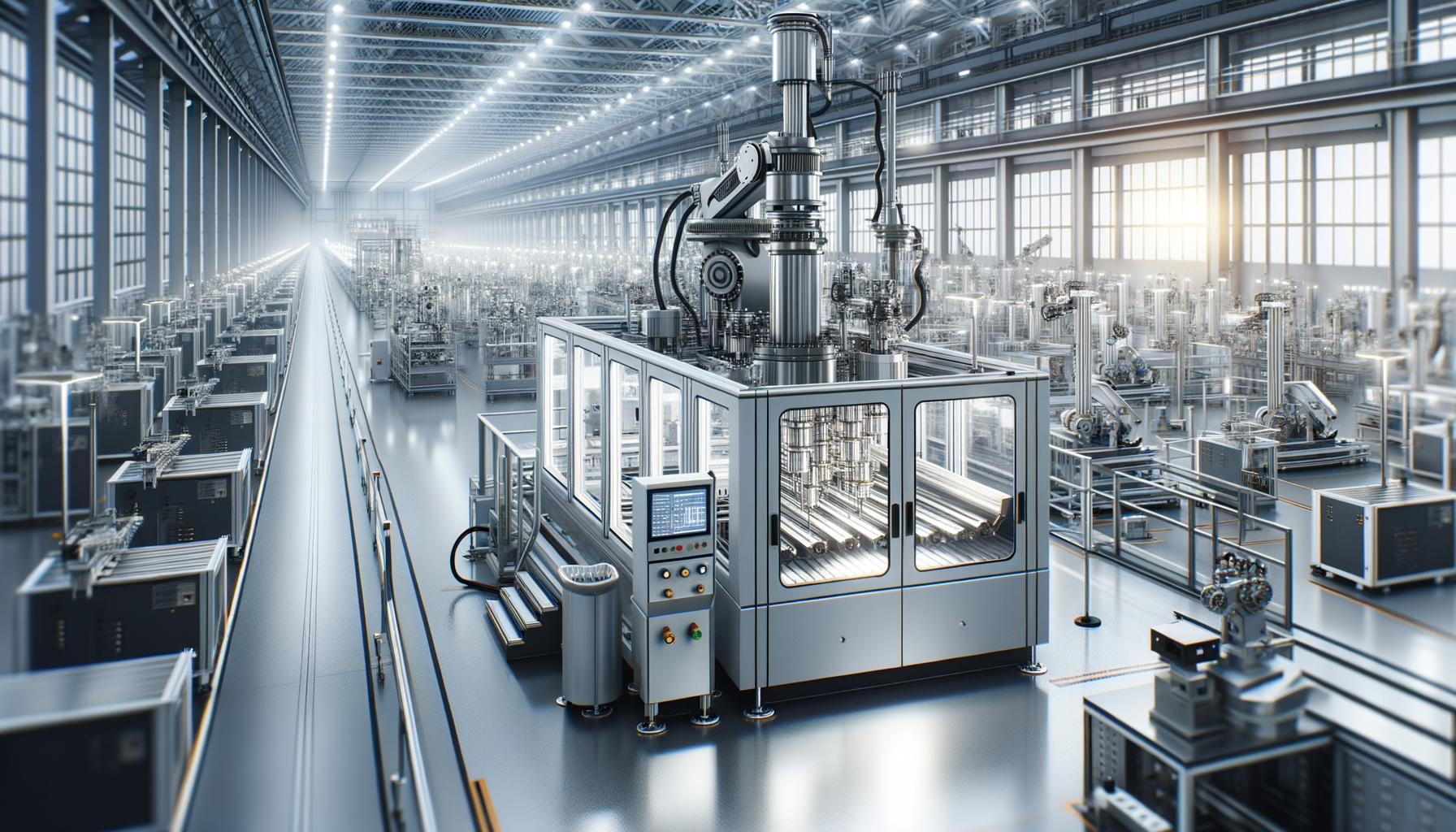The Role of Manufacturing Execution Systems (MES) in Modern Industry
In today’s rapidly evolving industrial landscape, Manufacturing Execution Systems (MES) have become integral to optimizing production processes. MES provides real-time data and control, allowing manufacturers to enhance efficiency, traceability, and quality assurance. By integrating MES, companies can monitor and manage operations more effectively, reducing downtime and waste.
One of the key benefits of MES is its ability to provide comprehensive insights into production activities. This system collects data from various points across the production line, enabling managers to make informed decisions. The integration of MES with existing equipment helps in synchronizing operations, which is crucial for maintaining a competitive edge in the industry.
Moreover, MES supports better compliance with industry standards by ensuring that all processes adhere to defined protocols. This is particularly important in industries where quality and safety are paramount. As a result, MES not only improves operational efficiency but also enhances customer satisfaction by delivering products that meet high standards consistently.
Machine Steel Fabrication: Precision and Innovation
Machine steel fabrication is a cornerstone of industrial manufacturing, providing the structural backbone for countless machines and components. This process involves cutting, bending, and assembling steel to create complex structures that are essential for industrial machinery. The precision and innovation involved in steel fabrication have advanced significantly, thanks to technological improvements.
Modern fabrication techniques utilize computer-aided design (CAD) and computer-aided manufacturing (CAM) systems to enhance accuracy and efficiency. These tools allow for the creation of detailed models that guide the fabrication process, ensuring each piece fits perfectly into the final assembly. Additionally, advancements in laser cutting and automated welding have further refined the fabrication process, reducing errors and increasing production speed.
As industries continue to demand more complex and durable machinery, steel fabrication processes will evolve to meet these needs. The integration of MES into fabrication workflows ensures that each stage of production is meticulously monitored and controlled, leading to higher quality outputs and reduced lead times.
Rebuild Manufacturing: Extending the Life of Industrial Machines
Rebuild manufacturing plays a crucial role in extending the lifespan of industrial machines. This process involves refurbishing or upgrading existing equipment to restore or enhance its functionality. By opting for rebuilds, companies can significantly reduce costs compared to purchasing new machinery, while also minimizing environmental impact.
Rebuilding involves several steps, including disassembly, inspection, repair, and reassembly of machinery components. Advanced diagnostic tools and techniques are employed to identify wear and tear or potential failures, ensuring that all issues are addressed before the machine is returned to service. This process not only revitalizes older equipment but also incorporates modern technologies that improve performance and efficiency.
Furthermore, rebuild manufacturing supports sustainability by reducing the need for new materials and decreasing waste. As industries strive to become more eco-friendly, rebuilds offer a practical solution for maintaining operational capabilities while aligning with environmental goals.
Optimizing Industrial Conveyor Systems for Maximum Efficiency
Industrial conveyor systems are vital for the seamless movement of materials across production facilities. These systems streamline operations by automating the transport of goods, reducing manual labor, and increasing throughput. Optimizing these systems is essential for ensuring that production lines operate at peak efficiency.
One approach to optimization involves the integration of MES with conveyor systems. By doing so, manufacturers can gain real-time visibility into conveyor operations, allowing for immediate adjustments and troubleshooting. This integration helps prevent bottlenecks and ensures that materials flow smoothly through the production process.
Additionally, modern conveyor systems are designed with energy efficiency in mind. Features such as variable speed drives and automated start-stop functions help reduce energy consumption, contributing to lower operational costs. By continuously monitoring and adjusting conveyor parameters, manufacturers can achieve optimal performance and extend the lifespan of their equipment.
Ensuring Facility Efficiency with Industrial Air Conditioning Service
Industrial air conditioning systems are critical for maintaining optimal working conditions in manufacturing facilities. These systems regulate temperature and humidity, ensuring that both machinery and personnel operate in a conducive environment. Efficient air conditioning is vital for preventing equipment overheating and ensuring product quality.
Regular maintenance and servicing of industrial air conditioning systems are essential to ensure their reliability and efficiency. This includes routine inspections, cleaning, and replacement of filters and components. By keeping systems in top condition, manufacturers can avoid costly breakdowns and maintain consistent production conditions.
Moreover, advancements in air conditioning technology have led to more energy-efficient systems that reduce operational costs. Features such as smart thermostats and automated controls allow for precise temperature regulation, optimizing energy usage while maintaining comfort levels. As energy costs continue to rise, investing in efficient air conditioning solutions becomes increasingly important for industrial facilities.



Leave a Reply